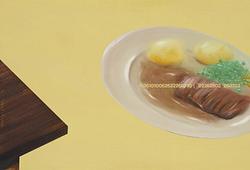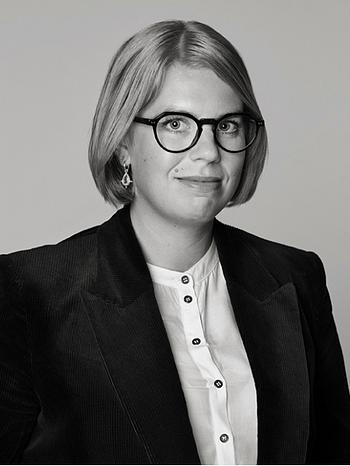Jens Ferdinand Willumsen
"Klagende kvinde med barn"
Signed J-F.W and dated 1905. Canvas 92 x 73 cm.
Alkuperä - Provenienssi
Arnbaks Kunsthandel, Copenhagen.
Conrad Pineus' collection, Gothenburg.
Private Collection.
Näyttelyt
Liljevalchs Konsthall, Stockholm, "Nyere Dansk Kunst", 1919, cat. no 348.
Den Frie Udstilling, Solo exhibition, 1923, cat. no 237.
Jubileumsutställningen Göteborg, Nordisk Konst, 1923, cat. no 166.
Konsthallen, Göteborg, Conrad M. Pineus samling, 1925.
Nationalmuseums, Stockholm, Retrospektiv utställning, 1934, cat. no 6.
Kunstnernes Hus, Oslo, Retrospektiv utställning, 1934, cat. no 3.
Kirjallisuus
Hj. Öhman, "J.F. Willlumsen med kommentarer af J.F.W", Köpenhamn, 1921, p. 96.
J. Plesner, "Studier över J.F. Willumsen", Kunstbladet I 1923, p. 36.
I. Rydbeck, "En konstsamling i Göteborg", Konstrevy X, 1934, p. 142.
Carl Nordenfalk, "Katalog över Conrad M. Pineus Konstsamling", 1940, listed and illustrated in the catalogue, p. 380-381, no. 231.
"Konst i svenska hem", volume I:I, listed on page 116 under collection 116; ""Dispaschör Conrad M. Pineus, Viktoriagatan 17, Gothenburg".
Muut tiedot
Jens Ferdinand Willumsen was a pioneer in Danish modernist visual art at the beginning of the 20th century. He was also one of the most versatile artists in Denmark. Throughout his long life, he was passionately engaged with artistic matters. Willumsen expressed himself in all available mediums, but painting was his preferred art form.
Willumsen began his artistic career with studies in architecture and became a student at the architecture department of the Royal Danish Academy of Fine Arts in 1881. However, he later switched to the painting department, where he studied until 1885. After three unsuccessful attempts to pass the academy's final exam, he studied under Peder Severin Krøyer at the Kunstnernes Frie Studieskoler in Copenhagen. His first international influences came during his stays in Paris in 1888-1889 and 1890-1894, as well as in Spain in 1889. There, he encountered European symbolism, influenced by artists like Paul Gauguin and Odilon Redon.
A significant part of Willumsen's life was spent outside Denmark. He felt stigmatized in his home country, but he also did not receive the recognition he deserved abroad. The truth, however, was that Willumsen was an artist who garnered significant attention. For many years, his works exhibited at "Den Frie Udstilling" (the artists' association he co-founded in 1891 and designed its exhibition venue in 1898) were eagerly anticipated, and the audience was almost disappointed if the compositions were not surprising or challenging enough.
In his painting, Willumsen was initially influenced by symbolism but gradually became more expressive. Swift brushstrokes, distorted figures, and strong colors were recurring elements in many of his paintings. As a sculptor, his works were monumental, with the most famous composition being "Den store relief" (The Great Relief), which can be found in his own museum in Frederikssund, inaugurated in 1957.
The painting in the current auction is a preliminary study for the famous work "Efter stormen" (After the Storm) executed by Willumsen in 1905, which is now part of the collection at the National Gallery in Oslo. In the painting, we see a young woman running on a beach with a little boy following closely. The boy reaches out his right arm towards her, but in vain – the woman's body language clearly shows that she is preoccupied with her own anxiety. The reason can be seen in the painting at the National Gallery, where a capsized boat is behind the woman, swept up in a storm. Perhaps one of her loved ones drowned in the storm that had just passed? She and the boy are left to fend for themselves in the desolate, inhospitable nature. Even the intense sunlight and the empty beach are perceived as threatening and corrosive. Willumsen emphasized all these elements through his sharp delineation and a disharmonious color scheme where "the color scheme is primarily based on the triad brown-green-blue-lilac, with each color in a light and dark value. The beach is light brown with dark brown shadows. The waves are dark dirty green with light and dark lilac foam, the intermediate calm areas are light green with ripples in dark and dirty green and lilac" (Pineus Art Collection, page 381).
At the beginning of the 20th century, Willumsen was interested in the dynamic relationship between nature's creative and destructive forces. "Klagende kvinde med barn" ("Mourning Woman with Child") / "Efter stormen" ("After the Storm") expresses the emotions of despair and isolation. Willumsen's inspiration for the running woman came from plaster casts of victims fleeing from the eruption of Mount Vesuvius in Pompeii (79 AD). During the excavations in Pompeii, plaster was poured into the voids left by humans, animals, and objects in the ash layers, allowing castings to be made of them. Willumsen was familiar with these castings.
In the catalog of the Pineus collection, the artwork is commented on: "Preliminary work according to Willumsen himself, 'Generalprøve' (dress rehearsal) for 'Efter stormen. Morgen' (After the Storm. Morning). However, according to W's own definition, a 'Generalprøve' is actually an attempt to paint the w h o l e composition from memory, whereas here, only so much of the landscape has been included as was necessary as a background for the figures" (Hj. Öhman quoted in Conrad Pineus Konstsamling).


































































